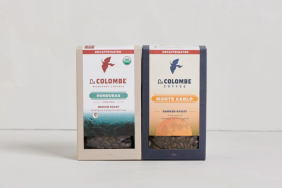We’re constantly being reminded that to optimize our health and wellness, we need to cut back on all the fun stuff like sugar, salt, caffeine and alcohol (well…maybe not alcohol). And while there are some benefits to elimination diets, there’s also a considerable amount of wiggle room. Case in point: coffee. Trying to separate fact from caffeine fiction can be dizzying, so we asked Nicole Fasules, RD, CD, board certified sports dietitian (CSSD) and certified personal trainer and Sarah Skalzub, registered holistic nutritionist, personal trainer and educator at Vega, to break down the pros and cons. Turns out, like most other things in life, the key to success lies in moderation.
PRO: Disease Prevention
PRO: Workout Enhancer
PRO: Motivation
“Sometimes all we need is a little pick-me-up from time to time and this is one of the reasons why I love coffee,” says Skalzub. “It’s great for helping your rise to the occasion when needed to get the job done. Just be sure you’re not using this as a crutch.”
CON: Sleep Issues
CON: Dehydration
“Coffee is a diuretic causing you to lose fluids in your body,” explains Skalzub. “When we lose fluids in our bodies we’re not only losing water, we’re also losing electrolytes. It’s important when leading an active lifestyle that you’re properly hydrating your body to keep it functioning at its best.”
CON: Highs and Lows
While coffee may help you rise to the occasion, it can sometimes be followed by an even heavier drop in energy, which is why Skalzub cautions us to not use coffee as our sole source of energy. “Make sure you’re providing your body with long lasting sustainable energy coming from your food. Some of my favorite energy-boosting foods are dark leafy greens and fresh fruit.”
Beyond coffee Fasules is quick to point out that anyone who’s feeling low on energy should look at their diet and ask themselves what they can start including that could clean it up or round it out a bit. “Are you including high antioxidant containing fruits in your diet like berries and citrus? How about greens? What about other colorful vegetables? Consistency with a healthy diet will help ward against disease and decrease inflammation in your body to help you feel your best.”








